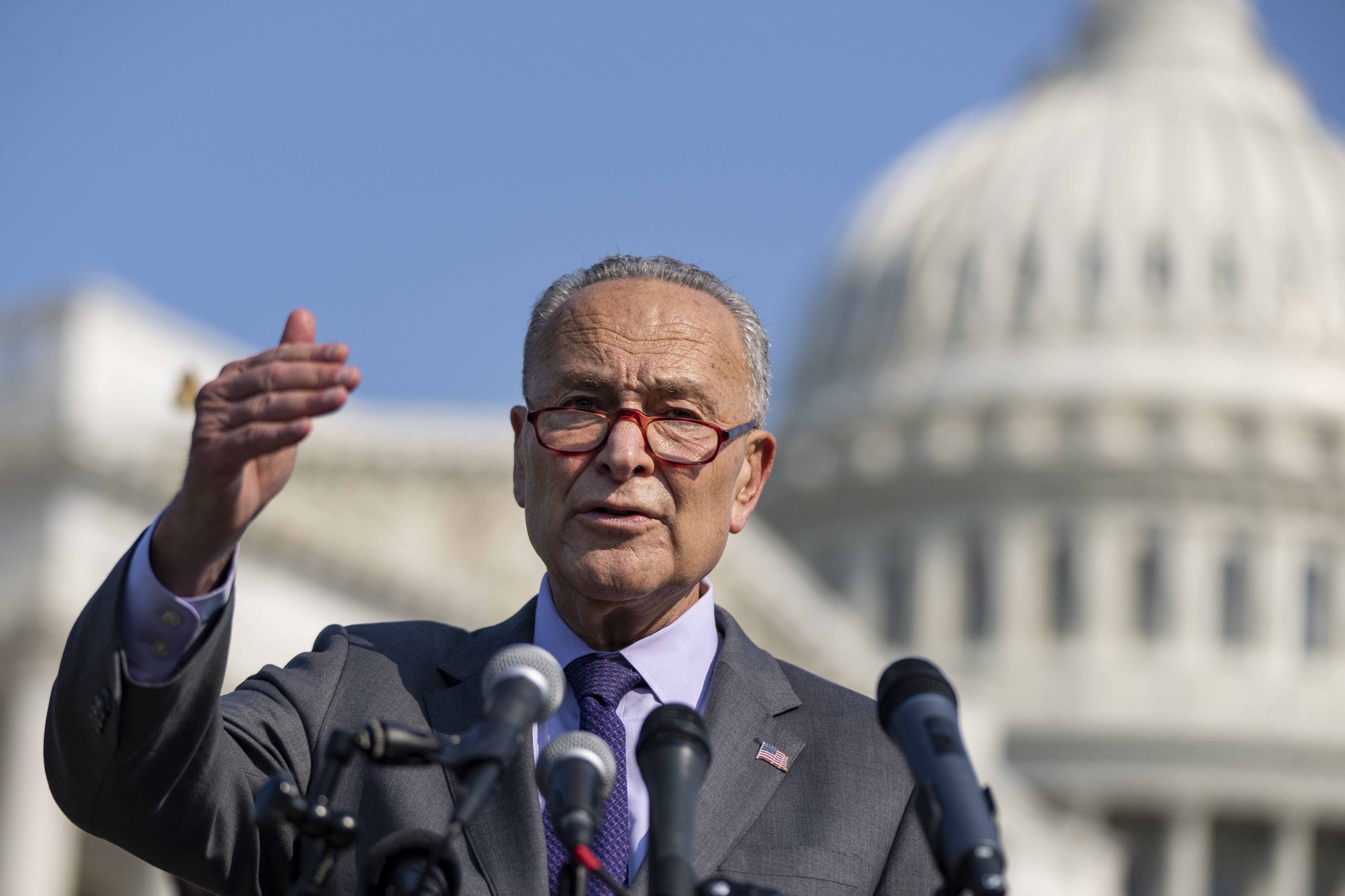Senate Republicans are increasingly likely to move forward on a bipartisan infrastructure framework, with a vote planned as soon as Wednesday night and an agreement on key issues.
Sen. Rob Portman (R-Ohio), the GOP point man on the deal, said Wednesday that he and other negotiators are ready to vote to consider the bipartisan agreement, after Senate Majority Leader Chuck Schumer announced a potential vote in the next twelve hours.
"As of late last night, and really early this morning, we now have an agreement on the major issues," Portman told reporters. "We are prepared to move forward."
Portman added that he didn’t know "exactly what time a cloture vote might occur," but guessed it would be "tonight sometime" based on Schumer’s comments. He said he was ready "to have a healthy debate here in the chamber."
The possible Wednesday vote is a sign that negotiators are closing in on a final deal. Schumer held a vote last week to begin the process of passing a cross-aisle infrastructure plan but Senate Republicans blocked it, asking for more time to finalize a deal.
“Senators continue to make good progress on both tracks of legislation,” Schumer said Wednesday morning.
GOP negotiators huddled with Senate Minority Leader Mitch McConnell. But it’s not clear if 10 Senate Republicans will vote to proceed.
Senate Democrats will also meet for a special caucus meeting at 1 p.m., according to a Democratic aide.
The group, led by Sens. Kyrsten Sinema (D-Ariz.) and Rob Portman (R-Ohio), announced a framework with President Joe Biden last month that would include nearly $600 billion in new spending on roads, bridges and broadband. But translating that framework into legislative text has proven challenging.
Sen. Lisa Murkowski (R-Alaska), a member of the group, said Wednesday that she planned to vote to move forward on the bipartisan bill. "There is a strong, solid number of folks on both sides of the aisle that want to get on an infrastructure package," Murkowski told reporters. "In fairness there’s a lot that many of our colleagues have not been read into." Sen. Mitt Romney (R-Utah), another bipartisan negotiator, said that he would do the same and was optimistic that the group would get the requisite 10 Republicans to sign on.
In a positive sign, Sen. Thom Tillis (R-N.C.) said that he would vote to move forward Wednesday, while Sens. Richard Burr (R-N.C.) and Lindsey Graham (R-S.C.) said that they were both inclined to do the same.
Some Senate Republicans, however, were more skeptical about the vote, saying they wanted to see legislative text and a score before moving forward. Committee chairs have also expressed frustration with the process.
"This idea of getting on a bill that’s still being written is still a bad idea," said Sen. John Cornyn of Texas, a close McConnell adviser. "We’re going to insist upon amendments because this bill’s been negotiated by 20 people but there are 80 other senators."
Speaker Nancy Pelosi hasn’t been briefed on the bipartisan deal and wouldn’t commit to not changing it if it came over to the House, she told reporters at lunchtime Wednesday. Pelosi and other top House Democrats are under significant pressure from some within their caucus — like Transportation Chair Peter DeFazio — to ensure the Senate deal isn’t completely void of House priorities.
“I can’t commit to passing something that I don’t know what it is yet,” Pelosi told reporters Wednesday. “But I’m hoping for the best."
Privately, though, Democrats admit it’s highly unlikely the House would try to make changes to the Senate deal, noting the White House’s opposition to reopening the negotiations after the fact. Pelosi also reiterated her promise to not even consider the bipartisan bill until the Senate passes a Democratically backed reconciliation package, leaving the timing in flux for when a deal would even reach Biden’s desk.
Schumer has long insisted that the Senate will pass the bipartisan infrastructure package and the budget blueprint for the $3.5 trillion social spending before leaving for the August recess. Earlier this week, he suggested the Senate could stay in through the weekend to finish up the bipartisan deal.
Tanya Snyder and Heather Caygle contributed to this report.





















